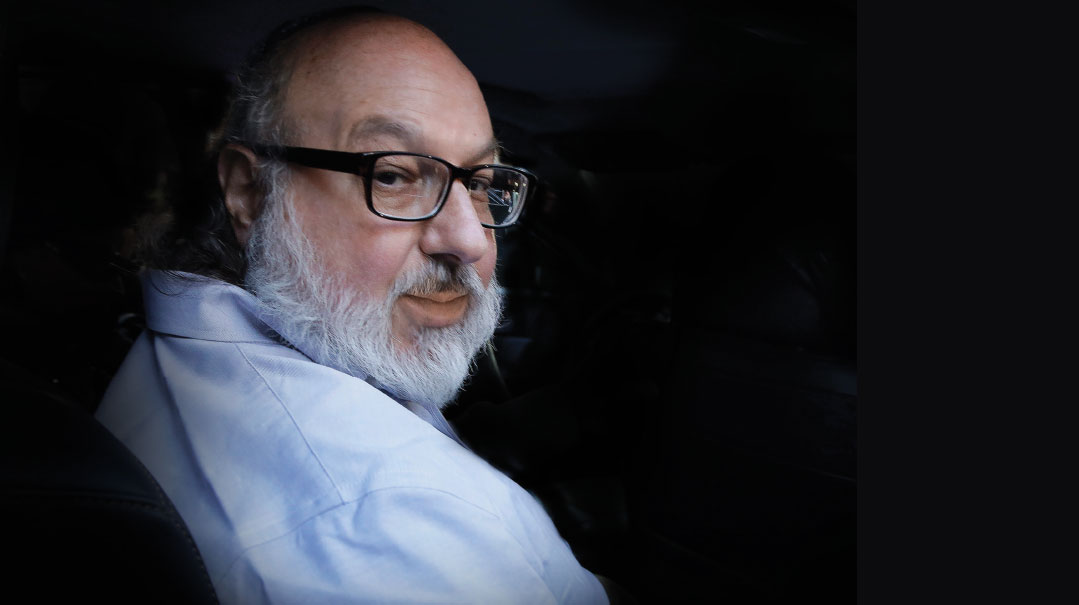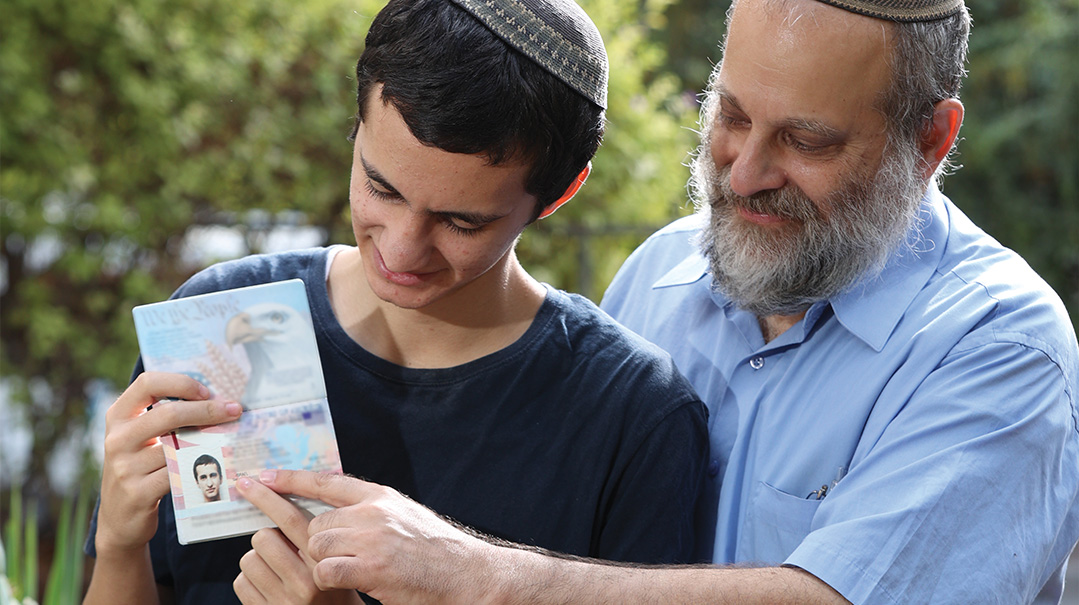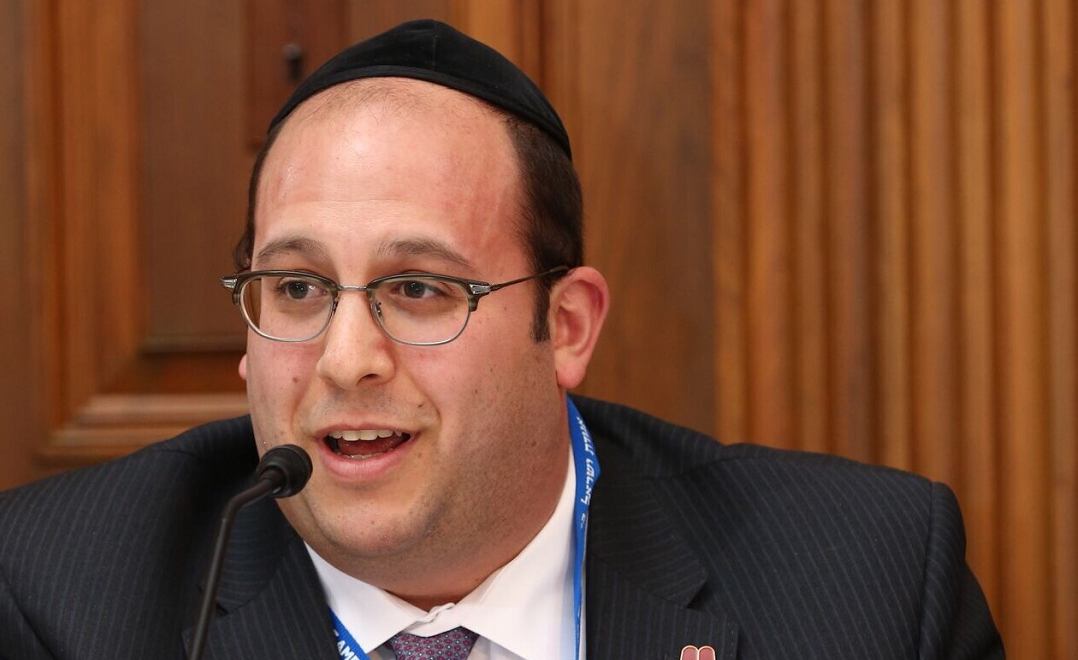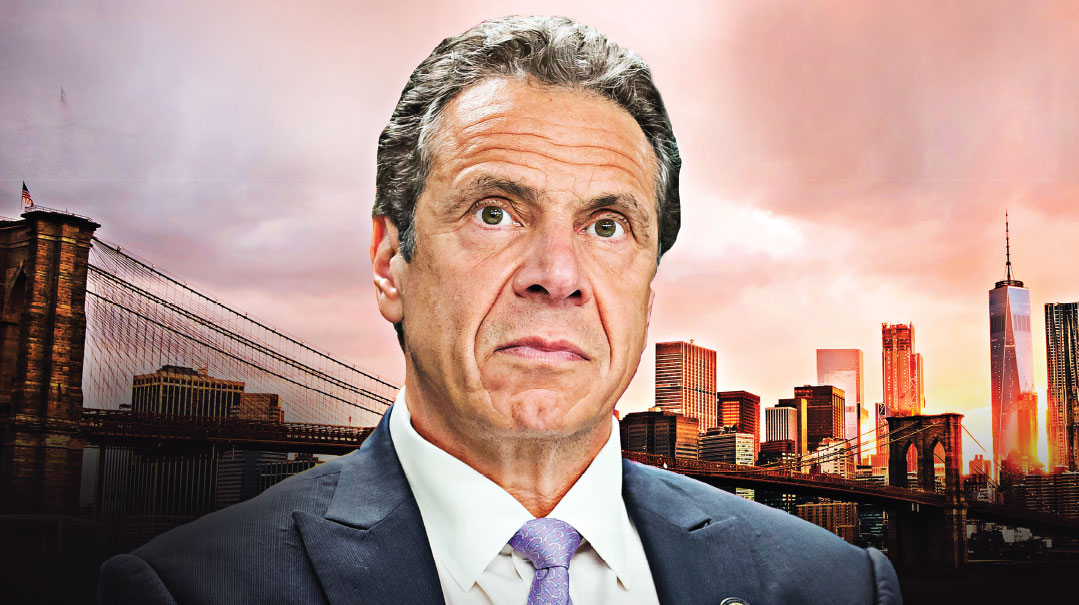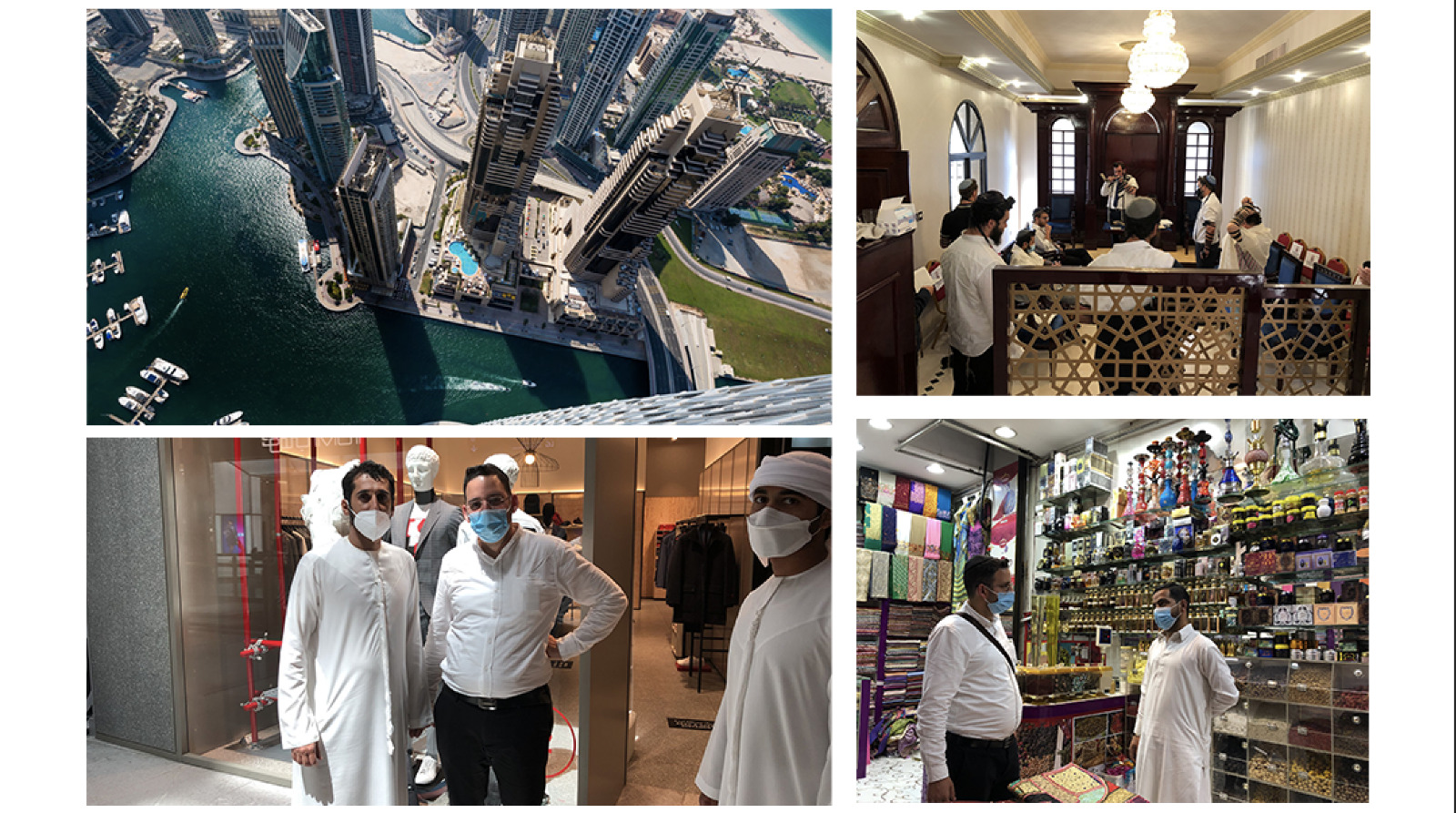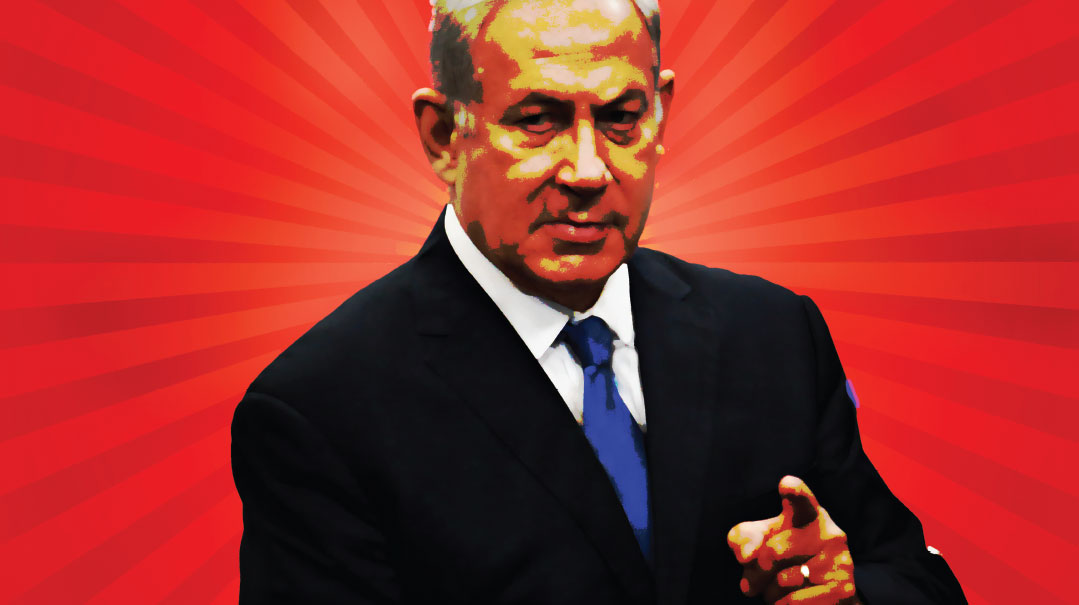Heaven’s Wedding

"When Hashem takes His own korban He chooses one without blemish."
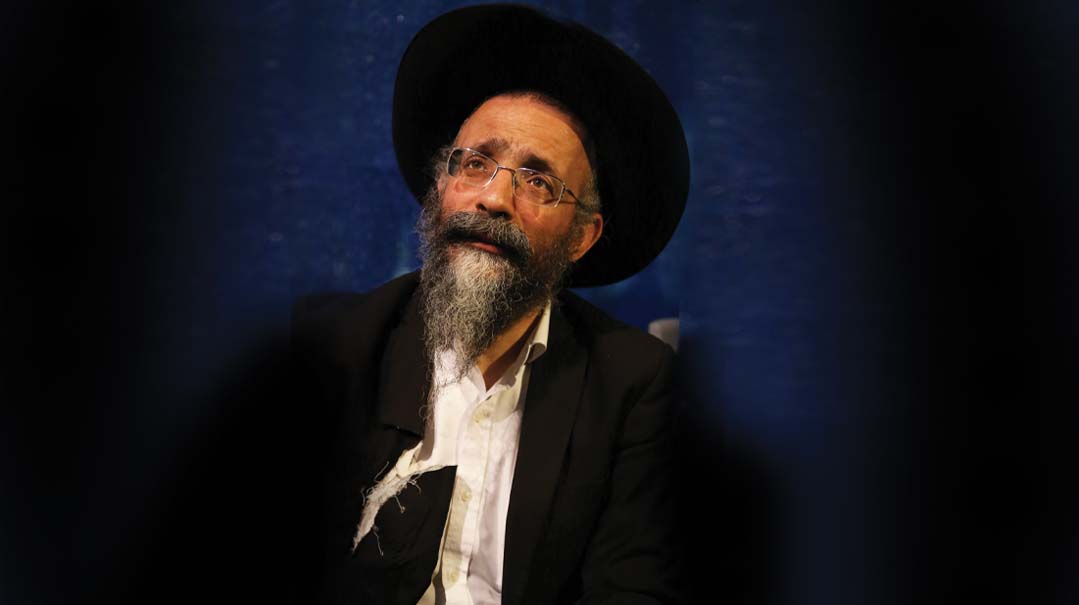
It’s a tradition that had been going on for two decades, and not even the unfolding personal catastrophe would make Rav Michoel Lasry give it up. Erev Shabbos before Shavuos, Rav Lasry, one of Israel’s foremost kiruv rabbis and sought-after lecturers on chinuch and shalom bayis — a dynamic and inspirational Torah speaker with the wit of a stand-up comic — was on his way from Bnei Brak to the southern development town of Dimona, where he had single-handedly build up a vibrant Torah community of hundreds of people over the last 20 years. After all, what would Shavuos be without their devoted rav?
His wife, Rabbanit Amalia, decided to forgo the trip this year, opting instead to stay with her elderly mother who had recently been hospitalized. Both were on the way to their respective Yom Tov venues when the phone call came: “There’s been an accident. Get to Barzilai as fast as you can.”
An hour before, their 20-year-old son, Shimon Yochai z”l, had gone with friends to a deserted part of the Ashdod beach for a pre-Yom Tov mikveh, when a deadly undertow pulled him away from the shoreline into the choppy waters. His friends managed to battle the waves and drag him back to shore, but by then he wasn’t breathing and had no pulse. MDA and Hatzolah teams who raced to the beach were eventually able to stabilize a heartbeat, yet he was brought to Ashkelon’s Barzilai Hospital in a coma on a respirator.
Rav Lasry’s driver made a sharp U-turn, and the Rav raced into the hospital ward to find a team of doctors fighting to save his son’s life. He sat down by Shimon Yochai’s bed, spending the next hour drenching his Tehillim with the desperate tears of a father in dire supplication for his son’s salvation.
And then, he stood up and faced his children. “I told them, ‘you stay here with Shimon Yochai, and I’m going back to Dimona.’ I knew that except for my own nerves, there wouldn’t be any benefit in me staying here. The greatest thing I could do for my son would be to create spiritual merits for him and strengthen others on his behalf,” Rav Lasry told Mishpacha in a moving, courageous conversation during the shivah. “What good would it have done to sit and stare at the monitors? I knew that davka there, in Dimona, we could access huge zechuyot that would act on his behalf.”
And so, as Shimon Yochai lay in a hospital bed barely clinging to life, Rav Michoel Lasry headed back to Dimona, where over 400 people would intensify their own Shabbos and Yom Tov with a transformative spiritual energy that was bound to reflect back to the near-lifeless bochur.
Shimon Yochai held on for nearly two days until Shavuos morning. It was only after Yom Tov that Rav Lasry was given the news — he tore kri’ah and headed home, to escort his beloved son on his final Earthy journey.
Basic Training
For those who know Rav Michoel Lasry, there was something predictable, almost expected, about the shivah house. People came to comfort, but instead left comforted. From where do he and his rabbanit have such deep founts of emunah that they can not only strengthen themselves, but pour their fortitude forth to so many others as well?
“It’s like in war,” Rav Lasry tells Mishpacha. “If you haven’t done basic training, you’ll get trounced. Similarly, if you’ve been training your emunah muscles all these years, when tragedy strikes you have a chance. But if you’ve never been spiritually prepared, you’re in real danger. A person who really lives in Torah, who really lives with the idea that Hashem is in charge and everything He does is right and just and perfect, finds reserves of koach when tragedy is about to bowl him over.”
Iyov, he says, knew the secret. “There’s a big question on Iyov,” says the Rav. “His ten children die, and then he’s notified that all the millions and billions he had in the market crashed. Plus, his entire body becomes covered in boils. His friends ask him, ‘Iyov, what do you have to say about all this?’ and he answers, ‘Hashem gave and Hashem took.’ He could have just answered, ‘Hashem took, may Hashem be blessed…’ but no. First he says ‘Hashem gave’ and only afterward does he say ‘Hashem took.’
“You see, for most people, it’s a shock when Hashem takes,” the Rav continues, “and that’s because they never delved into the first part — that Hashem gives. That’s the part they always took for granted. If they did basic training in ‘Hashem gives,’ they wouldn’t have such a problem with ‘Hashem takes.’ When you realize that everything is from Hashem, the things He gives you and the things He takes back, you realized that just as it was perfect when He gave, it’s also perfect when He takes.”
Everything’s Perfect
We hear from family and friends about Shimon Yochai — a yeshivah bochur who was dedicated to learning, but with another unusual trait as well. “From the time he was little,” says Rabbanit Amalila, “he had this amazing good heart. I remember once when he was a young child in cheder, the melamed told us that he’d been giving his morning snack — a roll and a shoko — to another child who never brought any food due to his family’s extreme poverty. When the melamed told him that his father bought this food for him so that he should be strong and nourished, he answered his rebbi, ‘I’m sure Abba wouldn’t mind if he saw how hungry my friend is.’ ”
Rav Lasry, who can usually have his audiences rolling on the floor in laughter even when discussing quite somber subjects, is now pensive, contemplative, and profound. “When they used to bring a korban to the Beit HaMikdash, they would check the lungs to see if they were smooth, check the internal organs for any problem. But when Hashem takes His own korban, it’s obvious that He’s chosen one without a blemish. He takes those nearest and dearest and our Shimon Yochai was one of those special ones. I’m sitting here and continue to be amazed by all the stories — of his chesed, of his overflowing generous nature — things we never knew. We had such a prize, and we didn’t even know…. But Hashem knew.
“Hashem wants to shake us awake to teshuvah before Mashiach comes,” he continues. “So what does he do? He takes someone, makes him very famous, and then sends that person a colossal tragedy so that he can give the world chizuk. If such a thing happened to some anonymous bochur who no one knew, how much chizuk would that give the world? Do you know how many pirkei Tehillim were said on Shimon Yochai’s behalf, how many hours of Torah learning were dedicated to him? Hashem makes these things public to increase the merits of the klal. Hashem wants to redeem us already, and I guarantee that all these tefillot brought Mashiach a few steps closer. So it’s all good, it’s all understood, everything’s b’seder and perfect, and nothing could be as good as the reality is, because Hashem makes our reality and He makes everything perfect.”
Royal Wedding
Rav Lasry is focused, connected. But he’s still a father in extreme pain, and we ask how it was, with all the trauma and anxiety surrounding him that Friday afternoon two weeks ago, that he managed to stay focused on his higher goal — to get in the car and drive to Dimona when his son was hovering between life and death.
“These are my people,” he says. “Over the last 20 years we’ve built a vibrant Torah kehillah from nothing. This place was a desert. But over the years, it’s incredible how many young people have come to teshuvah, how many parents would never have dreamed that their sons would learn in yeshivah. And this year, everyone was talking about how Shavuot was going to be bigger and better than ever, with hundreds of people expected to turn out for all-night learning, singing, tefillot. What a spiritual contribution to Klal Yisrael! How could I let them down?”
Rav Lasry knew where he was needed, and the people in Dimona reported that no one could even tell he’d been through a trauma until he told them about Shimon Yochai. And then, says the Rav, something incredible happened. “People were learning, screaming Tehillim, taking on kabbalot for the refuah of Shimon Yochai. People who’d never been to shul before took upon themselves spiritual steps. Thousands of zechuyot were created, and Hashem took all those merits and stored them away.
“But after we heard the heartbreaking news, people came up to me in shock. ‘How can it be that we learned all Shabbat and Yom Tov for Shimon’s refuah, we read ten thousand chapters of Tehillim, we stormed Shamayim for him, how can it be that Hashem took him anyway? Where did our prayers go?’
“I said to them, ‘Rabbotai, you have to know that no tefillah is ever lost. Everything is recorded, put in a bank. Everything you’ve done has been amazing preparation for something big.”
On Pesach, Shimon Yochai traveled to Uman and other kivrei tzaddikim to pray for the welfare of Am Yisrael, and to daven for his personal yeshuah. This summer, says Rabbanit Amalia, he was to enter the parshah of shidduchim, to marry and build his own mikdash.
“But Hashem had plans for another wedding,” says Rav Lasry. “Hashem said, ‘Let’s make him a wedding on My own wedding day.’ It’s brought down in Kabbalah that the night of Shavuot is the preparation for the wedding, and the ultimate unity between the chattan and kallah — Hashem and Am Yisrael — is at Mussaf of Yom Tov day. And just at that time, the holiest time of the year, after all the tefillot of the nation and all the preparations, they prepared Shimon Yochai for his real, eternal chuppah.
“Shavuot is the wedding of Hashem with Am Yisrael, the wedding that lasts for eternity, the day He took back to him the holy souls of Dovid Hamelech and the Baal Shem Tov. And after Shavuot we don’t say Tachanun for the entire following week — because this is the week of sheva brachot for us and Hakadosh Baruch Hu. So we’re making our sheva brachot here in this shivah house.”
(Originally featured in Mishpacha, Issue 615)
Oops! We could not locate your form.






